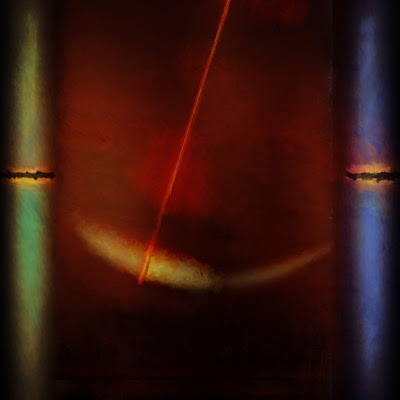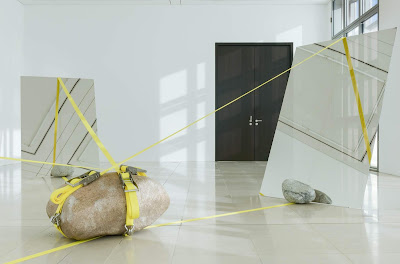Thomas Metzinger, german professor of philosophy, active since the early 1990s in the promotion of consciousness studies as an academic endeavour, published a monograph, Being No One, in 2003 in which he argues that no such thing as selves exist in the world: nobody ever had or was a self. All that exists are phenomenal selves, as they appear in conscious experience. He argues that the phenomenal self, however, is not a thing but an ongoing process. It is the content of a "transparent self-model", which he, in another book, oriented for a more general audience (2009), called The Ego Tunnel.
Extremely interesting to me are his thoughts on happiness, suffering and the conscious life.
Our conscious existence is a bargain which is not cost-effective. From Buddha to Schopenhauer there is a long philosophical tradition which essentially postulates that Life is basically not worth living.
Since the appearance of consciousness in the universe there is now a new perspective from which to regard the known part of the physical world and the evolution of consciousness. One could regard it as "an expanding field of suffering, as a place of error and mistake in a place where such phenomena as feeling and suffering and, well, yes, joy and happiness, had not existed before".
Yes, conscious self-models (thinking, self conscious intelligent beings) did bring conscious experience like happiness and joy into this physical world. But the psychological evolution obviously did not optimise us for permanent happiness. On the contrary, the evolution has put us into a hedonistic hamster wheel.
We are being motivated to seek emotional security, pleasure and joy and at all costs to avoid pain and depression.
"The hedonistic treadmill is the motor, invented by nature, to keep an organism running. We are able to see it's structure within us, but we will never be able to escape it. We are this structure".
It appears that we, even if dramatically painful conscious moments are relatively rare in our life, on a fine grained observational layer, tend to regard our own life as not worth living. This is true in the simple sense that we do not want to really relive a significant majority of the moments out of which our life is constructed.
And now, astoundingly, another phenomenon occurs: this discovery does concern us only for a short time. Almost immediately our self-model sets in motion autobiographical and cognitive activities which stabilise our self-esteem.
"The hedonistic quality is not what counts, it is the context of all my life which counts, my goals and wishes in a bigger temporal reference frame, which determine the value of the conscious existence", we say to ourselves.
We begin to philosophise: "What counts is not the mean average or point balance - only the peak experiences truly count", we think, or: "The majority of these conscious moments are really only neutral and not really painful".
Maybe even: "Ok, it is true, most moments in my life are rather negatively tinted or simply boring, but I write a thesis (I work in medical/physical/scientific research, I am politically active, I paint an oeuvre, I make a film...), this is a contribution to mankind's knowledge gain. And insight, knowledge and cultural evolution is far more important than my own personal state of accounts.
If we regard this phenomenological fact then an uncomfortable assumption begins to form: Is it perhaps one of the main functions, on a higher level of our self-model, in order to ensure the capability to go on living in this life, to create a functionally adequate form of self-deception which makes the ugly side of our daily life invisible behind the veil of a grandiose inner tale - a self-model with a soothing narrative?
#robertfaeth, #painterinBerlin, #paintings, #art, #bookblog, #bookreviews, #literaturelover, #poem, #poetry,
"The hedonistic quality is not what counts, it is the context of all my life which counts, my goals and wishes in a bigger temporal reference frame, which determine the value of the conscious existence", we say to ourselves.
We begin to philosophise: "What counts is not the mean average or point balance - only the peak experiences truly count", we think, or: "The majority of these conscious moments are really only neutral and not really painful".
Maybe even: "Ok, it is true, most moments in my life are rather negatively tinted or simply boring, but I write a thesis (I work in medical/physical/scientific research, I am politically active, I paint an oeuvre, I make a film...), this is a contribution to mankind's knowledge gain. And insight, knowledge and cultural evolution is far more important than my own personal state of accounts.
If we regard this phenomenological fact then an uncomfortable assumption begins to form: Is it perhaps one of the main functions, on a higher level of our self-model, in order to ensure the capability to go on living in this life, to create a functionally adequate form of self-deception which makes the ugly side of our daily life invisible behind the veil of a grandiose inner tale - a self-model with a soothing narrative?
#robertfaeth, #painterinBerlin, #paintings, #art, #bookblog, #bookreviews, #literaturelover, #poem, #poetry,










